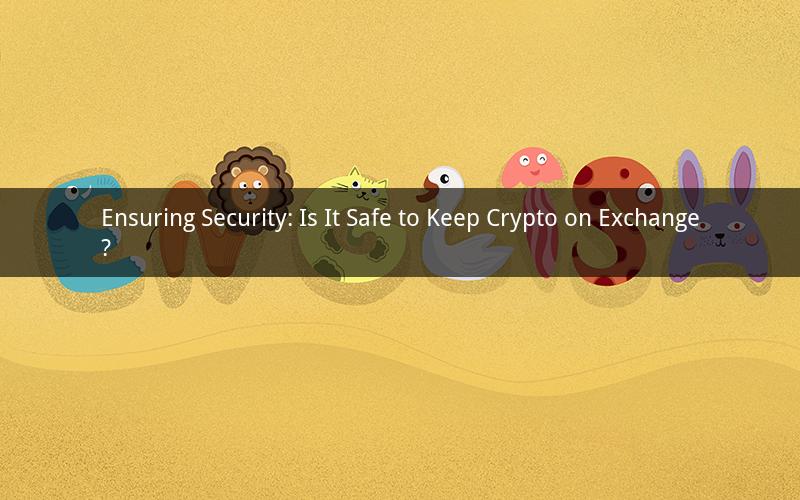
In the rapidly evolving world of cryptocurrency, the question of whether it is safe to keep your digital assets on an exchange remains a topic of great concern for many investors. While exchanges offer numerous benefits, such as ease of access, liquidity, and diverse trading options, the risk of hacks and theft cannot be overlooked. This article aims to delve into the various aspects of keeping crypto on an exchange and assess its safety.
1. Understanding the Risks
The primary risk associated with keeping crypto on an exchange is the potential for hacks and theft. Exchanges store large amounts of digital assets, making them attractive targets for cybercriminals. In the past, several high-profile hacks have resulted in significant losses for both individual investors and the exchanges themselves.
2. Exchange Security Measures
To mitigate these risks, exchanges have implemented various security measures. Some of the most common security practices include:
- Multi-factor authentication (MFA): This adds an additional layer of security by requiring users to provide more than one form of identification, such as a password and a unique code sent to their phone.
- Cold storage: Exchanges store a significant portion of their assets in offline wallets, known as cold storage, which are not connected to the internet and thus less vulnerable to hacking.
- Insurance: Some exchanges offer insurance policies to cover the loss of funds in the event of a hack.
3. The Role of User Behavior
While security measures play a crucial role in protecting assets, user behavior also contributes significantly to the safety of crypto on an exchange. Some tips for users to ensure their assets remain secure include:
- Using strong, unique passwords: Avoid using easily guessable passwords and enable two-factor authentication to add an extra layer of security.
- Keeping private keys safe: Never share your private keys with anyone, as they provide access to your assets. Consider using a hardware wallet for enhanced security.
- Monitoring your account: Regularly check your account for any suspicious activity and report it to the exchange immediately.
4. The Pros and Cons of Keeping Crypto on an Exchange
Pros:
- Ease of access: Exchanges allow users to trade and withdraw their assets quickly and easily.
- Diverse trading options: Users can access various trading pairs and leverage their assets to generate profits.
- Liquidity: Exchanges typically have high liquidity, meaning users can buy and sell assets without significant price changes.
Cons:
- Risk of hacks and theft: As previously mentioned, exchanges are vulnerable to cyber attacks, which can lead to the loss of assets.
- Potential for manipulation: Exchanges may be susceptible to price manipulation, as they are centralized platforms.
- Lack of control: By keeping crypto on an exchange, users are essentially entrusting their assets to a third party, which may not always be the most secure option.
5. Alternative Storage Options
For those concerned about the safety of keeping crypto on an exchange, alternative storage options are available. Some popular alternatives include:
- Hardware wallets: These devices store private keys offline, making them much more secure than traditional wallets.
- Paper wallets: These wallets generate a public and private key pair, which can be printed on paper and kept in a safe location.
- Software wallets: These wallets are available as mobile or desktop applications and offer varying levels of security, depending on their features.
In conclusion, while keeping crypto on an exchange may carry certain risks, it can still be a viable option for many investors. By understanding the risks, implementing proper security measures, and considering alternative storage options, users can make informed decisions about the safety of their digital assets.
Questions and Answers:
1. Q: Can I trust an exchange with my crypto assets?
A: It depends on the exchange's reputation, security measures, and track record. Research and choose a reputable exchange with strong security practices.
2. Q: Are cold storage wallets more secure than hot wallets?
A: Yes, cold storage wallets are generally more secure because they store private keys offline, making them less susceptible to hacking.
3. Q: What should I do if I suspect my crypto assets have been stolen from an exchange?
A: Report the incident to the exchange immediately and change your passwords. Consider seeking legal advice to recover your assets.
4. Q: Are there any risks associated with using a paper wallet?
A: Yes, paper wallets can be vulnerable to physical damage or loss. Store them in a secure location and consider making multiple copies for redundancy.
5. Q: How can I ensure the safety of my crypto assets while using an exchange?
A: Use strong passwords, enable two-factor authentication, and regularly monitor your account for suspicious activity. Consider using alternative storage options, such as hardware wallets, for enhanced security.